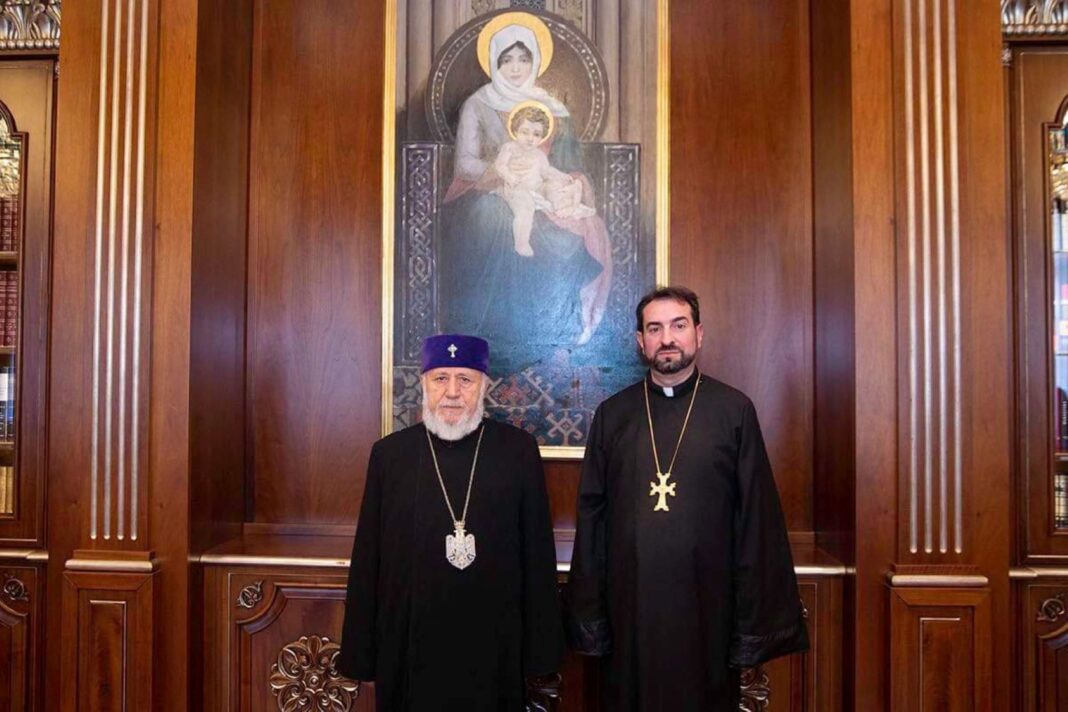By Catherine Tsounis
On December 18, 2023, in the Mother See of Holy Etchmiadzin, His Holiness Karekin II, Supreme Patriarch and Catholicos of All Armenians, received Reverend Fr. Abraham Malkhasyan, Pastor of the Armenian Church of the Holy Martyrs in the Eastern Diocese of the Armenian Church of North America (New York). Fr. Abraham, who holds a doctoral degree from Fordham University in the USA, continued his studies at the Department of Religion and Religious Studies of Fordham University under the blessings of His Holiness Karekin II. He successfully defended his doctoral thesis titled “Understanding Disaffiliation in the Armenian Church: A Study of Older and Younger Millennials.” Fr. Abraham also serves as a professor of Theology at St. John’s University in New York.
During the meeting, Father Abraham presented his doctoral work to His Holiness. He emphasized that the purpose of his research is to identify the current challenges faced by young families in actively participating in church life and to find ways to overcome these challenges.
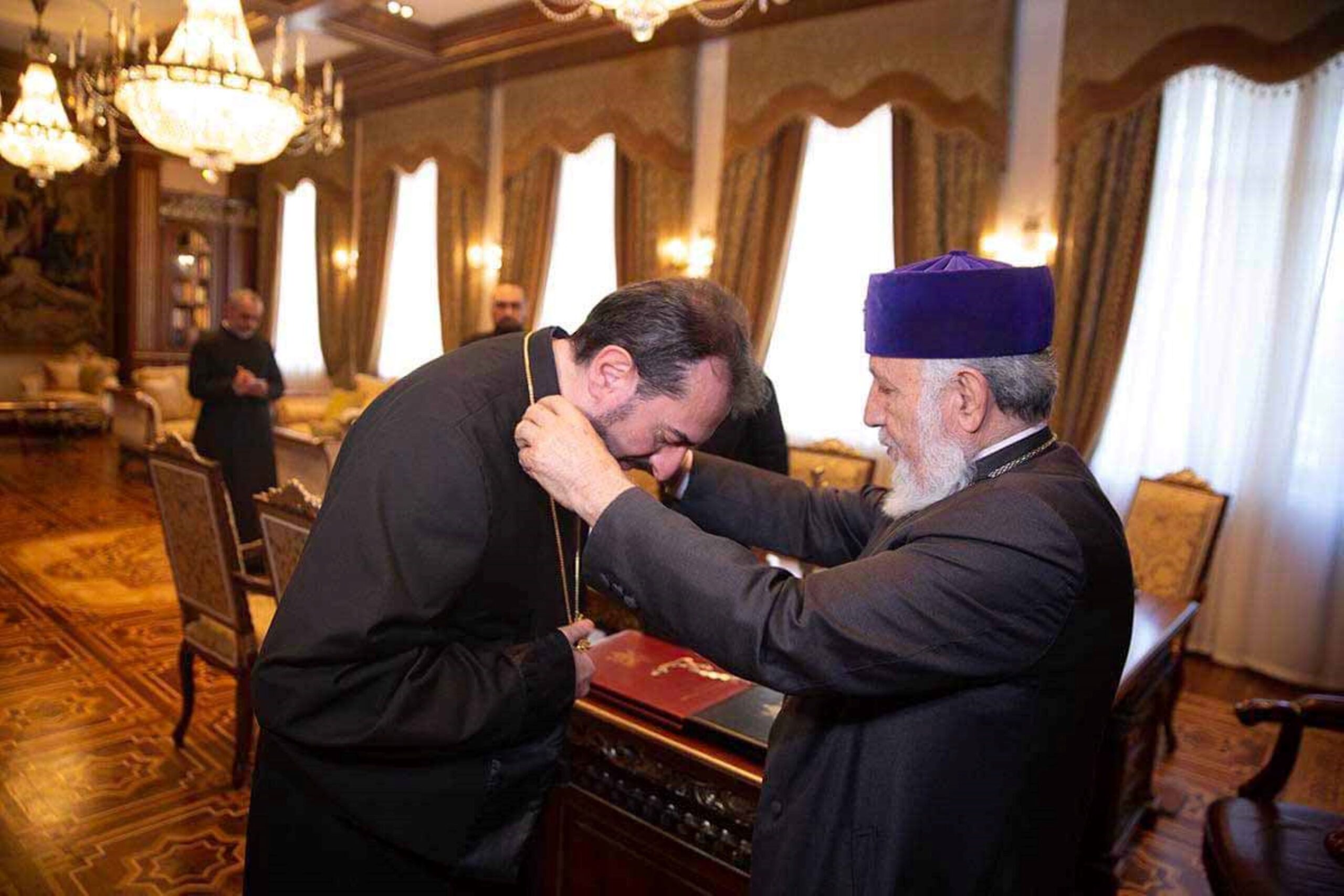
His Holiness, the Catholicos of All Armenians, expressed his satisfaction with Fr. Abraham’s academic achievements and stressed the importance of this work in the field of pastoral theology. He viewed it as an opportunity for clergy to better understand the issues related to the youth within the church.
His Holiness also recognized the significance of clergymen engaging in scholarly activities alongside their pastoral duties, as it enriches their knowledge and ultimately benefits their spiritual service. As a token of appreciation, His Holiness presented Fr. Abraham with a beautiful Pectoral Cross.
The meeting concluded with Reverend Father Abraham presenting His Holiness with a copy of his thesis work and the doctoral diploma.
In addition to his academic pursuits, Fr. Dr. Abraham Malkhasyan, along with sociologist Armen Khachikyan and historian Mikayel Malkhasyan, co-authored the book titled “THE CURRENT STAGE OF THE DEMOGRAPHIC TRANSITION IN THE REPUBLIC OF ARMENIA.” This publication delves into the Republic of Armenia’s demographic policy, historical demographic trends, and the impact of significant events such as the 2020 Artsakh War and the coronavirus pandemic on demographic processes. The book analyzes birth and death rates, migration patterns, and their effects on the demographic situation in Armenia.
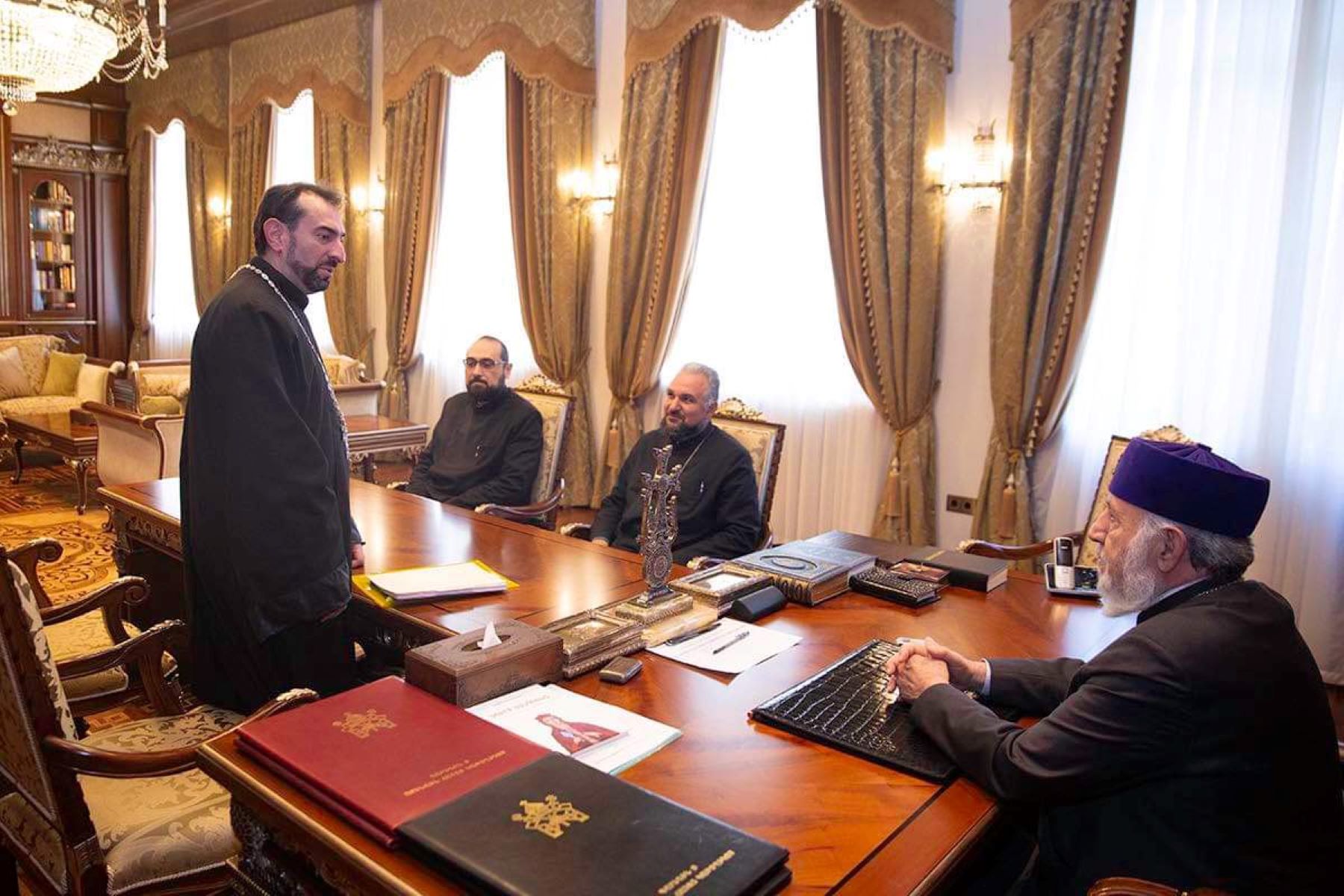
Greek Americans may wonder why they should learn about the Armenian contribution to their history. Armenians played a unique role in Eastern Orthodoxy and Hellenism, carrying a torch of knowledge throughout the Byzantine Empire’s history. Despite centuries of foreign domination, Armenia’s historical significance has often been overlooked or suppressed. The Byzantine Empire was a multicultural entity where various nations and races were united by the Greek language, civilization, and Orthodox faith, identifying themselves as ROMANS.
Armenians made substantial contributions to the Byzantine Empire, despite this history of neglect. Many Armenians achieved success in various fields within the empire, from bishops and architects to important military figures and even emperors. In fact, one out of every five Byzantine emperors and empresses had Armenian heritage, either in full or in part.
For example, Emperor Heraclius, who began the Heraclean dynasty, was of Armenian and Cappadocian descent. His victory in saving Constantinople was commemorated in the Akathistos Hymn, which recognizes the assistance of the Virgin Mary.
Emperor Basil II, known as “The Bulgar Slayer,” was also of Armenian descent and became one of the strongest Byzantine emperors. His military successes expanded the empire’s territories in the Balkans, Mesopotamia, Armenia, and Georgia.
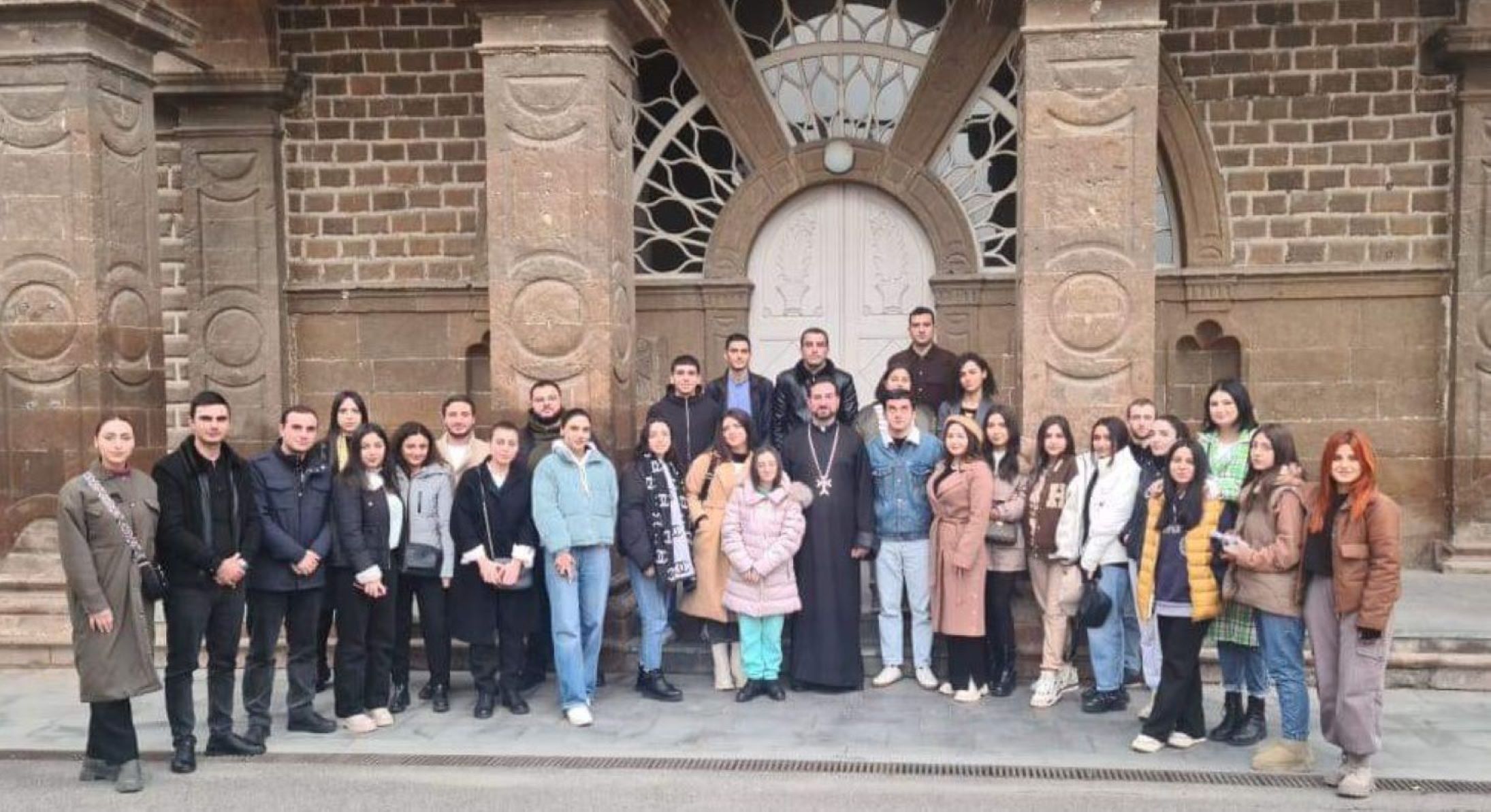
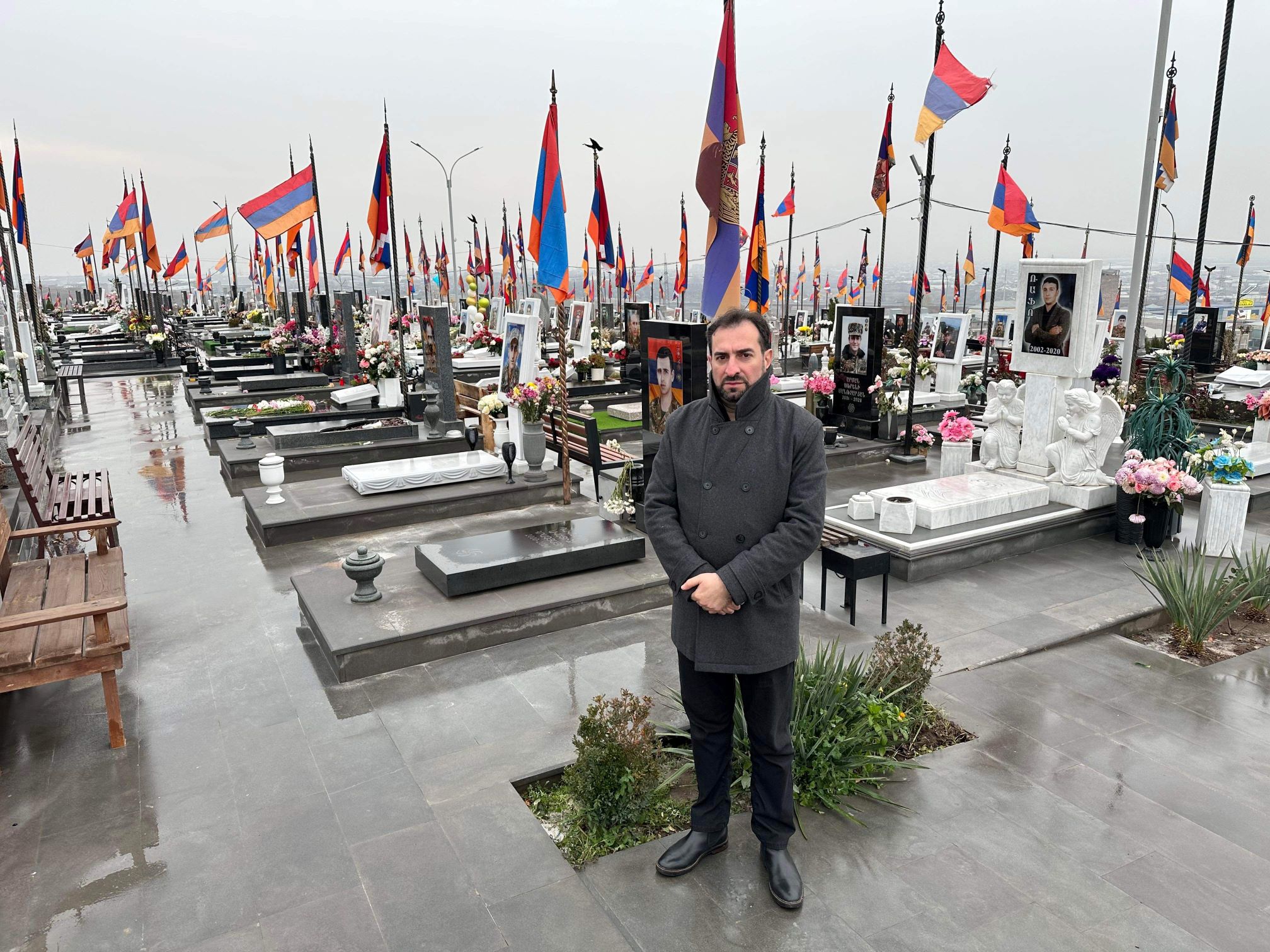
The Armenian military’s strength was a cornerstone of Byzantine stability and longevity. Armenians played a central role in the Byzantine army from the 5th century onwards.
One significant architectural example of Armenian influence within the Byzantine Empire is Hagia Sophia. After a devastating earthquake in 989 AD, the Byzantine Emperor Basil II enlisted the Armenian architect Trdat (Tiridates) to repair the dome of Hagia Sophia. This magnificent dome, designed by Trdat in the 10th century, remains intact to this day.
Armenians carried the Greek language, civilization, and Eastern Orthodoxy, making them integral to the Byzantine Empire’s cultural and religious fabric.
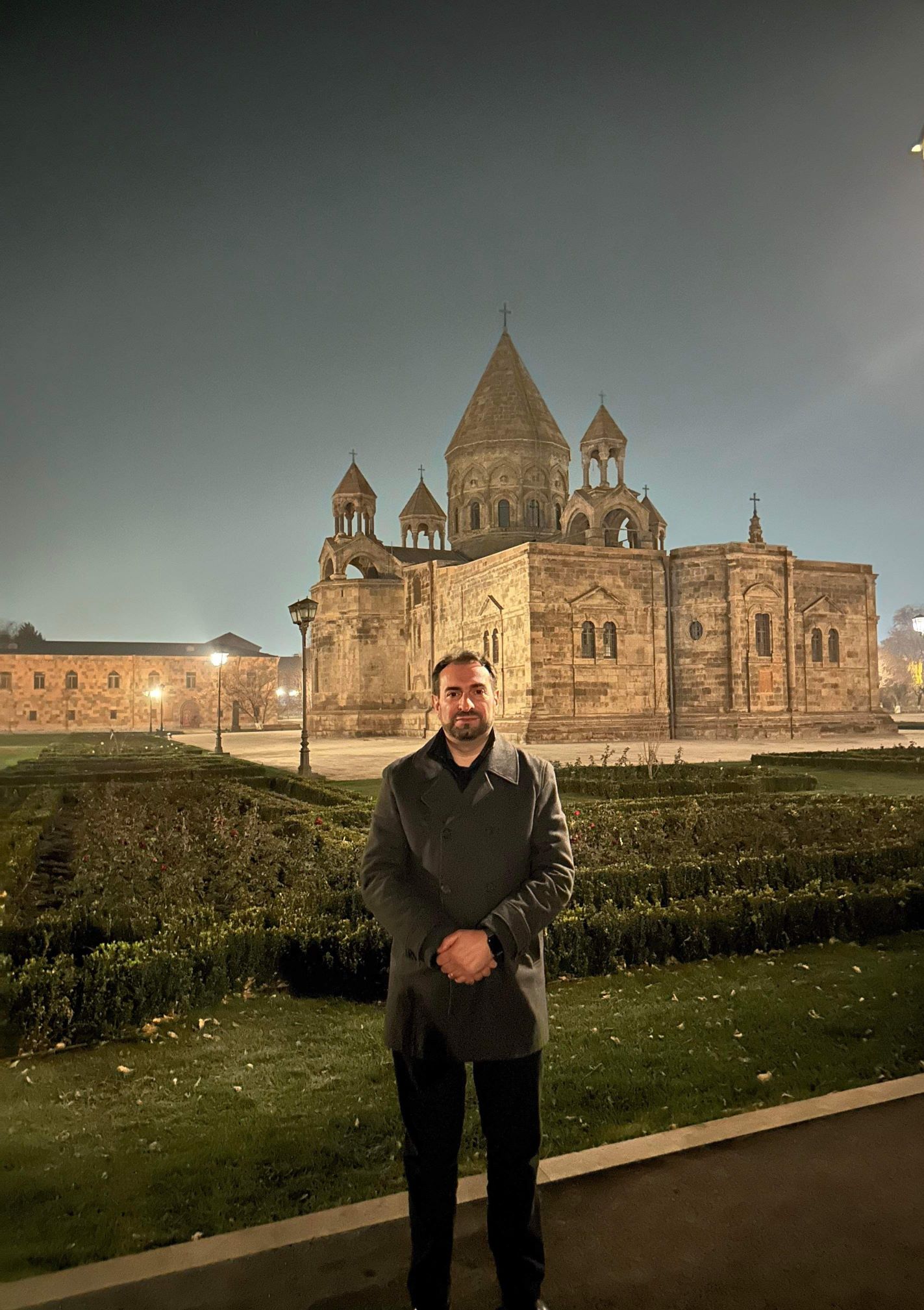
All photos used with permission from Fr. Dr. Abraham Malkhasyan.




